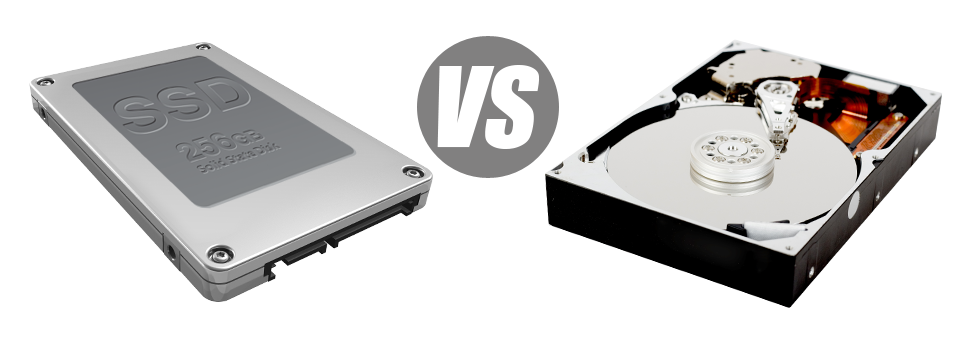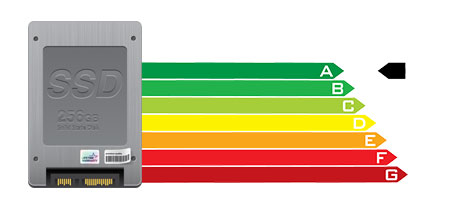These days, all completely new computers come with SSD drives in lieu of HDD drives. You will find superlatives about them all around the specialized press – they are a lot faster and function much better and that they are the future of home pc and laptop manufacturing.
Having said that, how can SSDs perform in the web hosting environment? Can they be well–performing enough to replace the proved HDDs? At Web Developer Express, we are going to aid you much better be aware of the distinctions among an SSD and an HDD and determine which one most closely fits you needs.
1. Access Time
With the release of SSD drives, data accessibility speeds have gone through the roof. Because of the new electronic interfaces found in SSD drives, the normal data access time has shrunk to a record low of 0.1millisecond.
The technology driving HDD drives times all the way to 1954. And even though it’s been considerably enhanced as time passes, it’s even now no match for the imaginative ideas driving SSD drives. With today’s HDD drives, the top data access speed you’ll be able to attain may differ in between 5 and 8 milliseconds.
2. Random I/O Performance
On account of the brand new radical file storage technique shared by SSDs, they supply a lot quicker file access speeds and speedier random I/O performance.
For the duration of Web Developer Express’s tests, all SSDs confirmed their ability to work with no less than 6000 IO’s per second.
Hard drives provide reduced data file access speeds because of the older file storage space and access technology they are using. In addition, they demonstrate noticeably slower random I/O performance compared with SSD drives.
In the course of our tests, HDD drives managed around 400 IO operations per second.
3. Reliability
The lack of moving parts and rotating disks within SSD drives, as well as the current developments in electrical interface technology have led to a considerably better data storage device, with a typical failure rate of 0.5%.
With an HDD drive to work, it should spin 2 metal hard disks at a minimum of 7200 rpm, retaining them magnetically stable in the air. They have a substantial amount of moving elements, motors, magnets as well as other gadgets jammed in a small space. Consequently it’s no surprise the standard rate of failure of any HDD drive ranges in between 2% and 5%.
4. Energy Conservation
SSD drives work almost noiselessly; they don’t make excess heat; they don’t demand supplemental cooling down alternatives and take in less electricity.
Tests have demonstrated that the average electrical power intake of an SSD drive is somewhere between 2 and 5 watts.
HDD drives are infamous for becoming loud; they are at risk from overheating and if there are several disk drives in a web server, you have to have one more air conditioning device simply for them.
All together, HDDs consume somewhere between 6 and 15 watts.
5. CPU Power
SSD drives enable swifter file access rates, which, in turn, encourage the CPU to finish data queries considerably faster and to go back to additional jobs.
The common I/O wait for SSD drives is simply 1%.
HDD drives permit sluggish access rates as opposed to SSDs do, which will result in the CPU needing to wait around, while scheduling allocations for your HDD to uncover and return the requested data.
The common I/O wait for HDD drives is just about 7%.
6.Input/Output Request Times
In real life, SSDs operate as wonderfully as they have during Web Developer Express’s lab tests. We ran an entire system backup using one of the production machines. Through the backup procedure, the average service time for I/O demands was in fact below 20 ms.
In contrast to SSD drives, HDDs feature significantly sluggish service rates for I/O queries. Throughout a hosting server backup, the normal service time for an I/O query varies between 400 and 500 ms.
7. Backup Rates
Discussing back ups and SSDs – we have discovered a substantual improvement in the back–up rate since we transferred to SSDs. Currently, a standard hosting server data backup can take merely 6 hours.
Over the years, we’ve got employed predominantly HDD drives on our servers and we’re well aware of their efficiency. On a web server pre–loaded with HDD drives, a full web server back up normally takes around 20 to 24 hours.
With Web Developer Express, you may get SSD–operated hosting solutions at cost–effective price points. The hosting plans and also the Linux VPS web hosting consist of SSD drives automatically. Go in for an web hosting account with us and experience the way your sites can become much better promptly.
Hepsia
- Live Demo
Service guarantees
- Each of our Virtual Private Servers is configured for you for free. 99.9% network uptime. Full root access.
Compare our prices
- Examine the tools and capabilities offered by our Virtual Private Servers. You could start with a smaller VPS Web Hosting package and move up with a mouse click as your needs increase.
- Compare our hosting plans
Contact Us
- Get in touch with us 24/7/365 by email or by employing the ultra–fast ticketing system. Our techs are going to answer any of your inquiries in up to 60 minutes.














